October 2023 Highlights and Hot Topics
Letter from the Executive Director
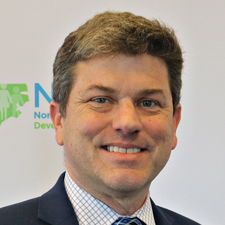
October is more than a month of pumpkins and candy. It is also National Disability Employment Awareness Month (NDEAM).
This is an important time for employment for people with intellectual and other developmental disabilities (I/DD). In fact, maybe more than in any previous time, North Carolina is investing significantly in increased I/DD employment.
The North Carolina Department of Health and Human Services (DHHS) has an initiative called Inclusion Works. It is an initiative to increase Competitive Integrated Employment (CIE). DHHS just announced a four million dollar grant to increase CIE with the organization Work Together NC. The grant will work “with an advisory group of individuals with I/DD, family members, service providers and other community partners to update and implement the Inclusion Works Strategic Plan. Work Together NC will conduct a thorough assessment of the current availability of competitive integrated employment opportunities in our state.”
This is in addition to a federal grant the Division of Vocational Rehabilitation Services (DVRS) received to increase CIE. The 13.8 million-dollar federal grant is called the Subminimum Wage to Competitive Integrated Employment (SWTCIE).
All of this will build on agreements between DHHS and Disability Rights North Carolina to increase CIE. It will also build on recent legislation and five million dollars in recurring funding related to CIE that was passed into law this year.
There are increased opportunities for individuals with I/DD to receive supported employment through 1915(i) Medicaid as well as through DVRS.
The North Carolina Council on Developmental Disabilities is committed to bringing everyone together as we work to increase CIE and opportunities for a meaningful day. For this reason, NCCDD is funding a half-day pre-conference/education session at the i2i Winter Conference on December 6th. The Council is funding a certain number of scholarships through its Jean Wolfi-Rossi Fund for individuals and families to join the pre-conference and/or the conference at no cost. If you are interested, you can visit this website.
Finally, NC APSE and all of us are excited to welcome the 2024 National APSE Conference to Charlotte, North Carolina from June 17th to 20th. Conference registration begins in December.
This is our moment to increase CIE. Let’s do it together!
Talley Wells, Executive Director
Public Policy (as of October 25, 2023)
State
Budget
Some of the highlights of the budget include 350 Innovations slots, $60 million for DSP wage increases, funding to support competitive integrated employment, and funding for educational opportunities in the community colleges and universities. There are still great needs, and we had hoped for a more robust response to the waiting list and the DSP wages. The education and advocacy efforts of NCCDD and our partners will continue as we monitor the impact of this year’s funding and also focus on additional support to meet the needs.
Medicaid Expansion
The Department of Health and Human Services (DHHS) received approval from the Centers for Medicare and Medicaid Services (CMS) for the launch of Medicaid Expansion on December 1, 2023. This means that more people ages 19 through 63 will now qualify for healthcare coverage through Medicaid. On December 1, close to 300,000 will automatically qualify and thousands more will be made eligible over time. It is estimated that more than 600,000 people in North Carolina will gain this coverage. DHHS has been preparing for this and continues to focus on being ready for the December 1 time frame.
NCDHHS launched a new website with a toolkit of resources for organizations to spread the word to their communities.
Tailored Care Management (TCM)
In response to feedback about the implementation of TCM, the Department of Health and Human Services formed a TCM Collaborative. The Department is working with Care Management Agencies (CMA), Advanced Medical Homes (AMH+), and the LME-MCOs to gather feedback on provider rates, assignment processes, and community awareness. Strategies are being developed for addressing barriers (including the rate structure), improving accuracy of data, and increasing awareness and education in the community.
At the Council’s October Policy Education Committee, Gwen Sherrod from the Division of Health Benefits (DHB) provided an overview of TCM. Here is a link to the presentation slides.
Federal
House of Representatives Speaker Update
On Tuesday, October 3, the House of Representatives made a historic vote to remove Kevin McCarthy as the Speaker of the House. After McCarthy was voted out, Republicans held a vote for who would be the next Speaker. Steve Scalise won the vote against Jim Jordan by 14 votes. However, Scalise decided to remove his name for nomination a day later. Now, as of October 25, 2023, after three failed attempts to elect Jim Jordan, the House has sworn in Representative Mike Johnson as Speaker of the House. Federal legislative work is at a standstill.
Budget
Since there has not been agreement on the federal budget, Congress enacted a continuing resolution on September 30 that allows funding to continue for the first seven weeks of fiscal year 2024. The new deadline for a budget is November 17. As a reminder, the funding in the new budget will have some limitations as a result of the agreement that was previously made on the debt ceiling. These caps on funding, the lack of leadership in the House, and the quickly approaching deadline for the budget create concerns about funding for several disability funding streams including for the Developmental Disabilities Councils.
Tracking Prevalence of Cerebral Palsy
For the first time in over a decade, the Centers for Disease Control and Prevention network that tracks the prevalence of autism is expanding to include another developmental disability. The agency said that five of its Autism and Developmental Disabilities Monitoring Network sites will start keeping tabs on the incidence of cerebral palsy in their communities in addition to autism. This will allow the CDC to track issues related to disparities in diagnosis and access to services. Collecting this type of information can lead to earlier diagnosis of cerebral palsy and access to early intervention. Earlier diagnosis can lead to increased availability of services and improved outcomes.
Subminimum Wage
As a result of rising pressure from disability advocates to stop allowing people with disabilities to work for less than minimum wage, federal officials say they plan to undertake a “comprehensive review” of the employment model. The U.S. Department of Labor said it will look at Section 14(c) which is the program that allows employers to pay workers with disabilities less than minimum wage. The Department of Labor wants to hear from people with disabilities and other stakeholders about their experiences and thoughts about the program.
This effort aligns with the Council’s work on promoting competitive integrated employment.
Social Security and Supplemental Security Income
Benefits are expected to rise again next year. Monthly benefits will likely increase by 3.2% in 2024. The increase is due to an automatic cost-of-living adjustment, or COLA, that Social Security and SSI beneficiaries receive annually to account for inflation.
In addition, a bipartisan group of lawmakers in the U.S. Senate and House of Representatives are bringing back legislation that would increase the amount of money that SSI recipients can save without losing their benefits. Currently, individuals cannot have more than $2,000 in assets at any time and the limit for couples is $3,000. The SSI Savings Penalty Elimination Act would increase those caps to $10,000 for individuals and $20,000 for married couples. The legislation would also connect the amounts to inflation going forward.
There was hope that this legislation would pass last year. The sponsors of the bill believe they have additional support from members of both parties and from the House and Senate.
People with disabilities designated as a group experiencing health disparities
The National Institute on Minority Health and Health Disparities (NIMHD), designated people with disabilities as a population with health disparities for research supported by the National Institutes of Health (NIH). Having this designation is important because it opens up more opportunities for research to understand the difficulties experienced by people with disabilities in accessing health care. Identifying barriers and unmet needs can lead to strategies to address the gaps. This will help improve access and lead to better outcomes.
NIH also issued a notice of funding opportunity calling for research applications focused on novel and innovative approaches and interventions that address the intersecting impact of disability, race and ethnicity, and socioeconomic status on healthcare access and health outcomes. These are important steps at the federal level to address equity in access to healthcare.
Celebrating NDEAM: Council Member Puts His Advocacy to Work
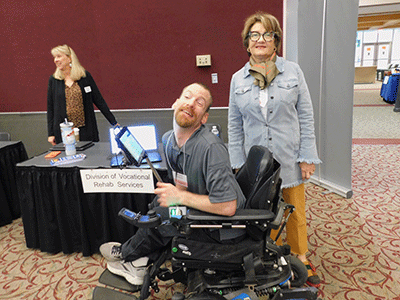 Brendon Hildreth with Jenny Pleasants from the NC DVRS at the NC Assistive Technology (AT) ExpoOctober is National Disability Employment Awareness Month, a month dedicated to celebrating the contributions of America’s workers with disabilities and showcasing supportive, inclusive employment policies and practices that benefit employers and employees. This year’s theme is "Advancing Access and Equity" and NCCDD Council Member Brendon Hildreth is an example of that philosophy. Join us in celebrating NDEAM by reading about Brendon’s success of finding meaningful employment while advancing access and equity.
Brendon Hildreth with Jenny Pleasants from the NC DVRS at the NC Assistive Technology (AT) ExpoOctober is National Disability Employment Awareness Month, a month dedicated to celebrating the contributions of America’s workers with disabilities and showcasing supportive, inclusive employment policies and practices that benefit employers and employees. This year’s theme is "Advancing Access and Equity" and NCCDD Council Member Brendon Hildreth is an example of that philosophy. Join us in celebrating NDEAM by reading about Brendon’s success of finding meaningful employment while advancing access and equity.
Brendon Hildreth has been a member of the North Carolina Council on Developmental Disabilities (NCCDD) since 2016 representing Craven County. He is a prime example of finding success through opportunities. Even before being appointed to the Council, Hildreth has been an impactful advocate across the state.
Through his advocacy with NCCDD and other accessibility initiatives, Hildreth has proven that he has a gift to help advocate and not let himself be seen solely as a person with a disability; instead he prefers to be seen as a person who needs accommodations. And that passion has led him to a career in advocating for others with disabilities with the North Carolina Department of Vocational Rehabilitation Services (DVRS).
So how did he get there? First, you need to know a little more about Brendon.
Hildreth is no stranger to advocacy, and one of his biggest achievements is his involvement with the Accessible Icon Project. The goal of the Project is to advocate for the use of an updated version of the old, outdated accessibility symbol into a more active and engaging picture meant to show that people with disabilities can be active, engaged and independent in their communities.
Through his advocacy efforts, he was successful getting the new accessible icon approved for use in the State of NC. And he was successful in getting his hometown of New Bern to be the first city in the State to adopt the icon.
Since then, many businesses, towns, schools and colleges in NC have adopted the icon and more importantly, its message. He's excited that people are recognizing the message. Just recently, he learned that not only has East Carolina University adopted the icon, but also, through the help of a graduate student, one was placed on the Miracle Field in Wilmington NC. The graduate student plans to approach the City of Greenville and other NC universities to adopt the icon and its message.
He was also able to get the City of New Bern to make its City Hall more accessible. Hildreth served on a committee about how to make City Hall more accessible because he couldn't get into the building using his wheelchair. The City of New Bern is almost done installing an elevator, and rumor has it, he has been promised the first ride!
Driven to educate others and advocate on behalf of the disability community, Hildreth has a simple philosophy. “It's very easy to complain,” he shared. “But I like to point out an issue and also try to come up with a solution.”
In 2022, Hildreth graduated from East Carolina University with a 3.4 grade point average. Around the same time, he was approached by Kathie Trotter, Division Director for DVRS about an internship position. He and Trotter are both Council members. She was also familiar with his success as an advocate with the Accessible Icon Project.
He accepted the offer and began his responsibilities as an intern which included educating about the Accessible Icon Project, helping with requests through DVRS’ emails from people in NC in need of services, assisting the Division Director on projects and more.
While working with emails from clients, he was able to come up with a process to streamline the requests so that DVRS field offices would get to them quicker and therefore clients would get services quicker. It was well received and adopted by DVRS.
Because of his accomplishments during an internship, Trotter offered him a permanent position with DVRS. Now, he is a Disability Peer Consultant and his responsibilities include continuing to educate about the Accessible Icon Project, while working with each DVRS field office throughout the state to adopt the message of the new accessible icon.
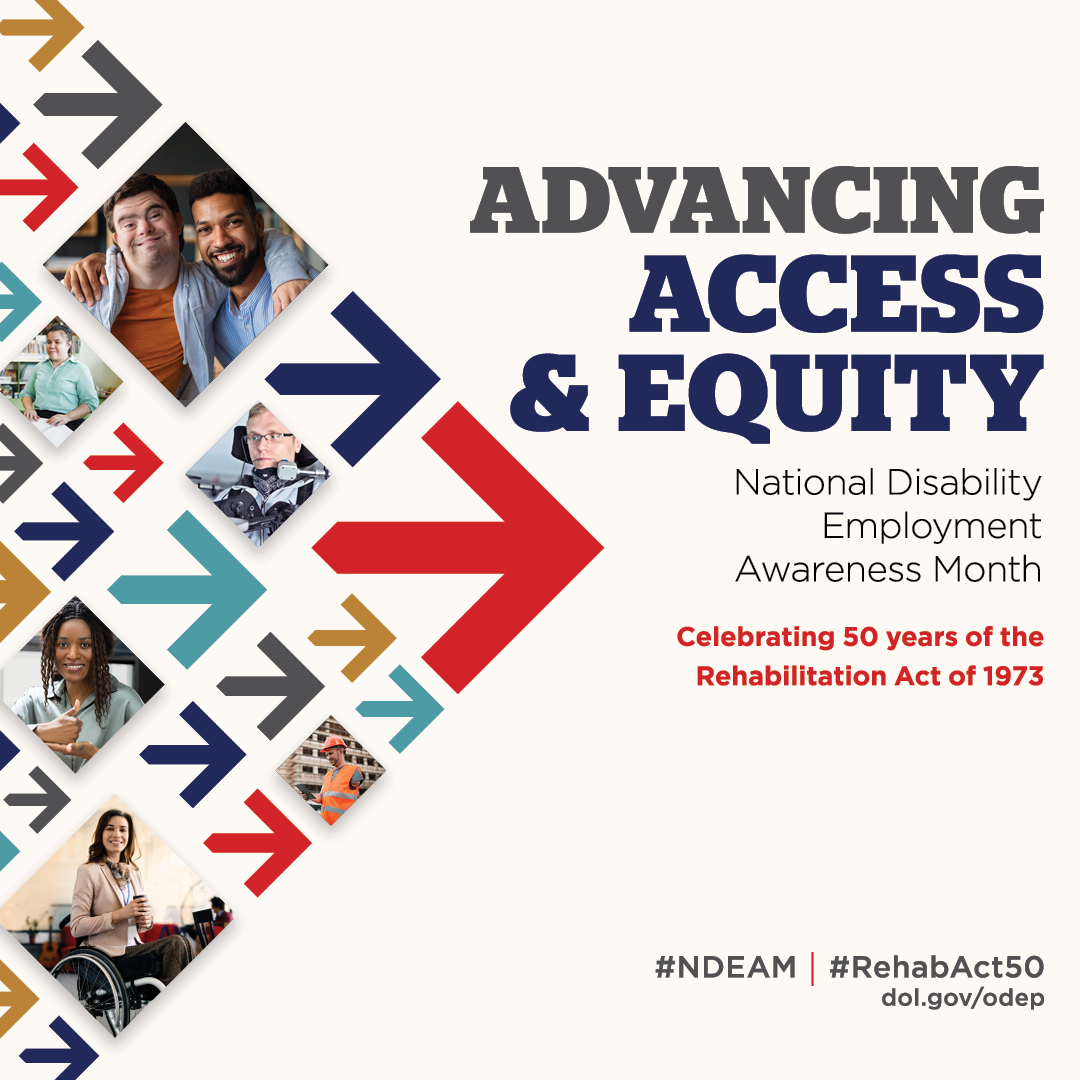 “This role is new for me, so I’m still learning,” he said. “I’m looking forward to showing people that I am capable and willing to do a job. I want to help others find jobs and most importantly, tell others what DVRS can offer.”
“This role is new for me, so I’m still learning,” he said. “I’m looking forward to showing people that I am capable and willing to do a job. I want to help others find jobs and most importantly, tell others what DVRS can offer.”
He said that he has experience with this because he asked “a bazillion questions” while he was applying for services in the DVRS system. Hildreth experienced a lot of frustration along the way and he wants to help others not to have to navigate the hard way.
Next, he will be trained to be a peer mentor and will work as a liaison between DVRS and people looking for a job. He has a uniqu perspective as both a person with a disability and an employee of DVRS. When asked what he likes best about his job, Hildreth said he enjoys being seen and respected as a peer in his work environment and enjoys meeting new workers and having them value and seek his input.
According to his mother, Darcy, Brendon was never brought up as a person with a disability. “It sounds funny, but we just brought him up with an ‘everyone has stuff happen’ viewpoint. We believe as a family that everyone has a gift to share and you need to find yours and share it. He believes in equity, not equality. Everyone gets what they need, not the same.”
November’s Self-Advocate Discussion Series Topic: Being Grateful
We’ve learned that an attitude of gratitude is essential to well-being and a longer life. For what are you thankful? Join self-advocates from around North Carolina at the next Self-Advocate Discussion Series in sharing happy or inspiring stories about what you are thankful for in life. Please join us on Wednesday, November 15 from 1 to 2pm. Register here!
Facilitated by Chris Hendricks, NCCDD Policy Education Coordinator and NCCDD self-advocate members, this series offers you a chance to spend time with others with common interests, develop your personal story to be goal and topic-oriented, and become part of the NCCDD community! You can view video recordings of previous Self-Advocate Discussion Series webinars on our YouTube channel.
Hispanic Outreach is Making a Difference
By Irlanda Ruiz, NCCDD's Hispanic Disability Advocate
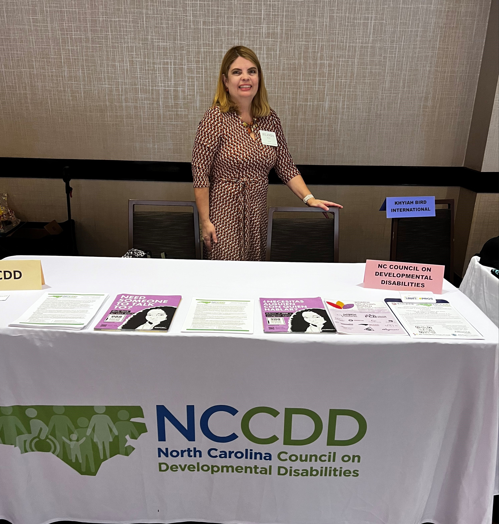 NCCDD proporciona orientación sobre el valor de las personas con I/DD
NCCDD proporciona orientación sobre el valor de las personas con I/DD
El sábado 30 de septiembre de 2023, EL NCCDD participó de la conferencia: Mujeres edificando Mujeres (Women Uplifting Women) que se efectuó en el Hilton Raleigh North Hills en Carolina del Norte.
A través de este evento, en el que acudieron cientos de personas, el NCCDD tuvo la oportunidad de informar a los presentes sobre el valor de las personas con discapacidad, el propósito de NCCDD, el plan quinquenal, oportunidad de subvenciones, actividades y eventos a favor de la población con discapacidad intelectual y en el desarrollo (I/DD) de Carolina del Norte.
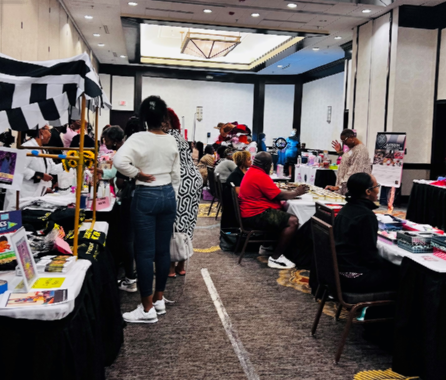 La conferencia fue organizada por Insightful Visionaries (Visionarios Perspicaces), cuyo CEO, Carolyn Covington es una persona con discapacidad visual.
La conferencia fue organizada por Insightful Visionaries (Visionarios Perspicaces), cuyo CEO, Carolyn Covington es una persona con discapacidad visual.
NCCDD Provides Guidance on the Value of People with I/DD (English version)
On Saturday, September 30, 2023, the North Carolina Council on Developmental Disabilities (NCCDD) participated in the conference, “Women Uplifting Women” held at the Hilton Raleigh North Hills in North Carolina.
Through this event, which was attended by hundreds of people, the NCCDD had the opportunity to inform those present about the value of persons with disabilities, the purpose of the Council, the five-year plan, grant opportunities, activities and events in favor of the population with intellectual or other developmental disabilities (I/DD) in North Carolina.
The conference was organized by Insightful Visionaries, whose CEO, Carolyn Covington, is visually impaired.
Let’s get social on Instagram!
We have expanded our social media presence! Check us out now on Instagram!
Follow our page to learn more about NCCDD, its members and initiatives, announcements, news, and more!
You can also find us on Facebook.

